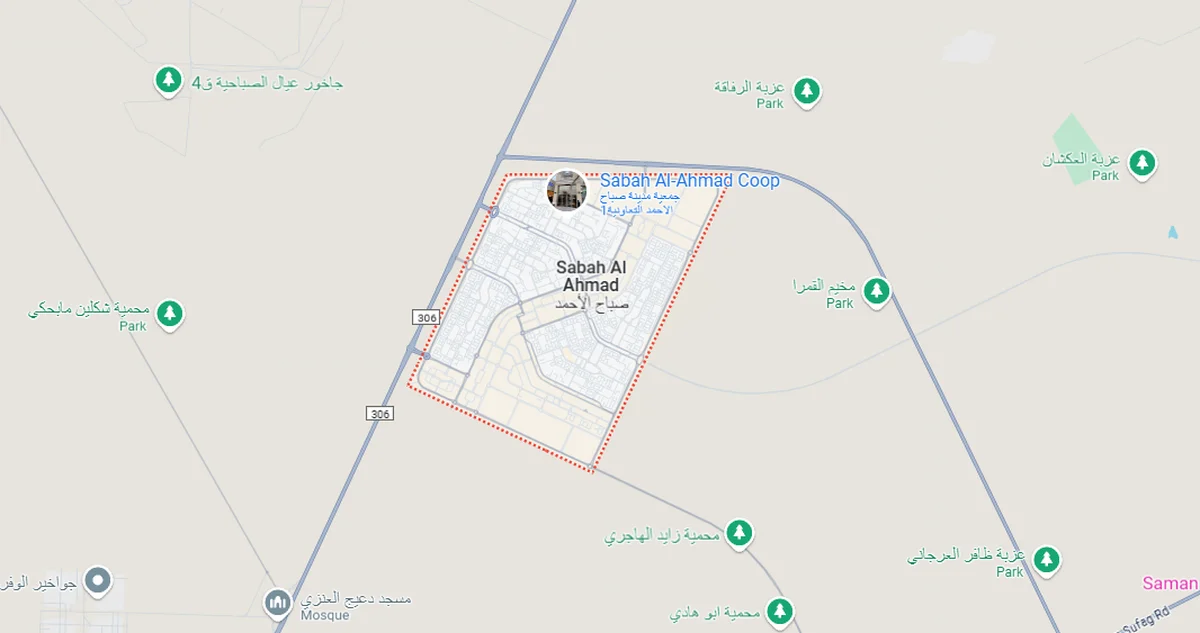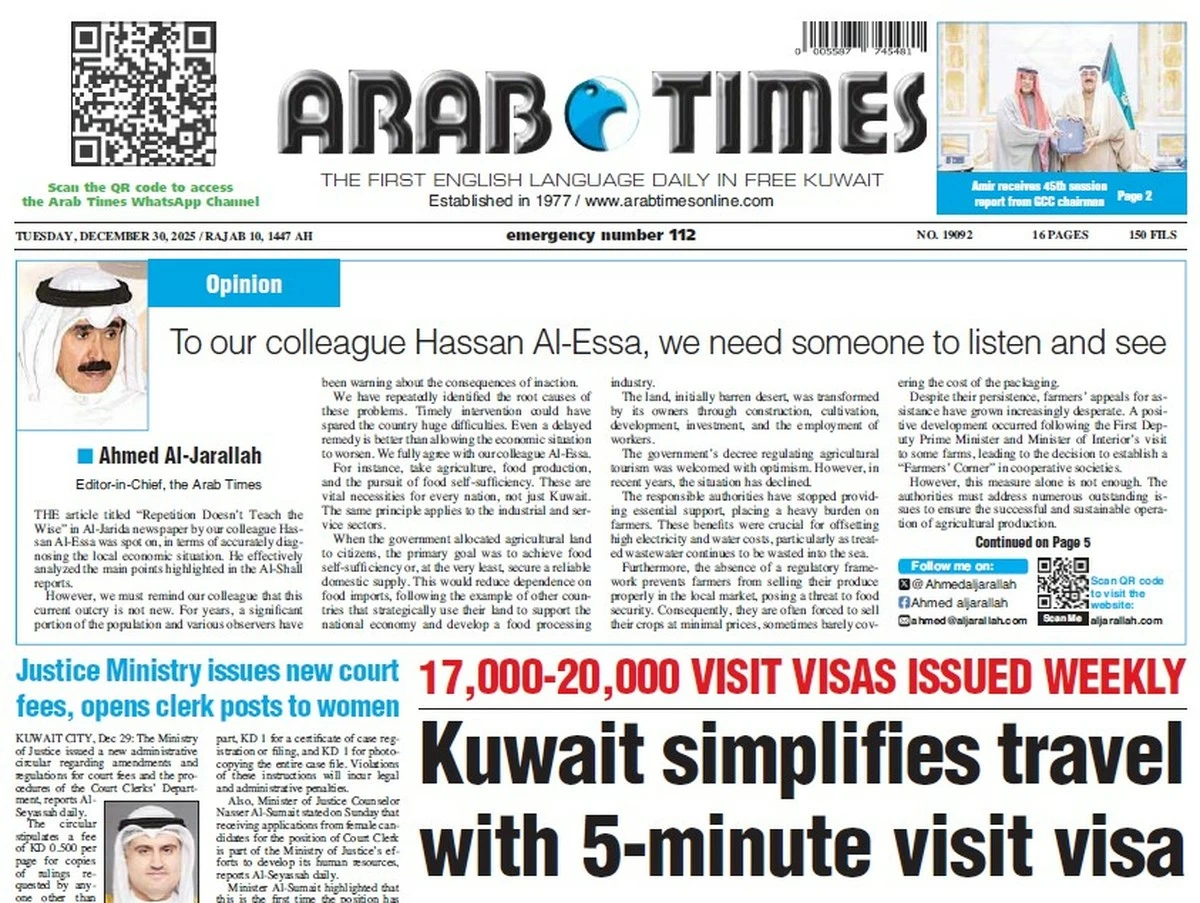09/12/2024
09/12/2024

KUWAIT CITY, Dec 9: The Head of the Sabah Al-Ahmad City Residents Committee, Turki Al-Asimi, has issued a distress call to government officials, urging swift action to resolve the city’s pressing problems. Home to approximately 250,000 residents in the central, eastern and southern areas, the city faces challenges that hinder safe and stable living conditions, including issues with roads, sanitation, education, health services and more. Speaking to Al-Seyassah daily, Al- Asimi acknowledged the significant governmental efforts to establish the city, which began providing housing in 2009 and became livable in 2020. However, unresolved issues such as flooding, road access, and inadequate services continue to cause hardship for residents.
One of the primary challenges is the lack of a dedicated rainwater drainage system. Al-Asimi highlighted the risk of water accumulation, which creates swamps around and within the city, posing health hazards due to foul odors, insects, and disease causing conditions. He praised Minister of Public Works, Dr. Noura Al-Mishaan, for connecting sewage drains to Umm Al-Hayman station last year, reducing sewage pollution risks. Nevertheless, he called for expedited completion of a rainwater drainage system to prevent a repeat of the 2018 flooding crisis. Al-Asimi emphasized the urgent need for maintenance and new road infrastructure.
Blocked rainwater drains along roads in Al-Wafra and Al-Khiran exacerbate flooding risks. He also pointed out the lack of alternative routes to the city, with only one functioning entrance. New roads would reduce traffic congestion, cut travel distances to the capital, and enhance safety for students and employees who endure long commutes. The rapid growth of housing developments in Sabah Al-Ahmad City and neighboring areas like Al-Wafra and Al-Khiran has led to calls for the creation of a seventh governorate. Al-Asimi suggested establishing a new administrative structure with security, education, and healthcare districts to manage the increasing population efficiently. Al-Asimi called for establishing branches of Kuwait University and applied institutes in the city to alleviate the burden on students traveling long distances daily. He also urged the government to accelerate the establishment of a long-delayed medical city, warning that bureaucratic delays could postpone its completion by over a decade. Inadequate municipal resources have led to neglected street cleaning and the proliferation of dry grass on sidewalks, which shelters dangerous reptiles like snakes and scorpions. Al-Asimi stressed the need for more cleaning equipment and regular pesticide spraying to address these concerns.
The committee leader also advocated for appointing independent boards of directors for each of the region’s five cooperative societies. He argued that separate boards would promote healthy competition and better serve citizens’ needs. Despite the challenges, Al-Asimi expressed optimism about the efforts of Ahmadi Governor Sheikh Hamoud Jaber Al- Ahmad, who is committed to solving the city’s issues in collaboration with government agencies. Residents remain hopeful for a coordinated approach to improve living conditions and ensure a decent quality of life under Kuwait’s wise leadership.
By Mohammed Ghanem
Al-Seyassah/Arab Times Staff


